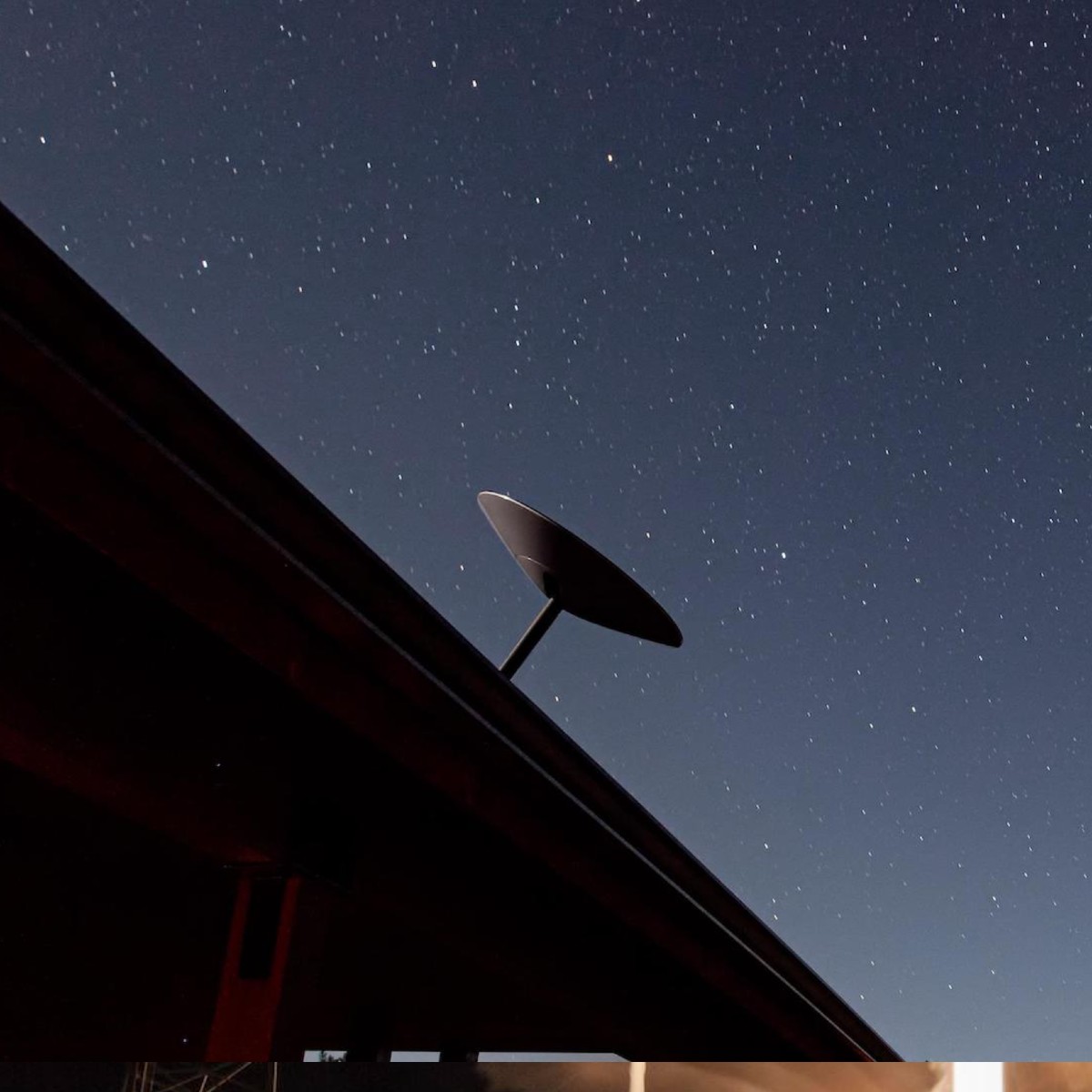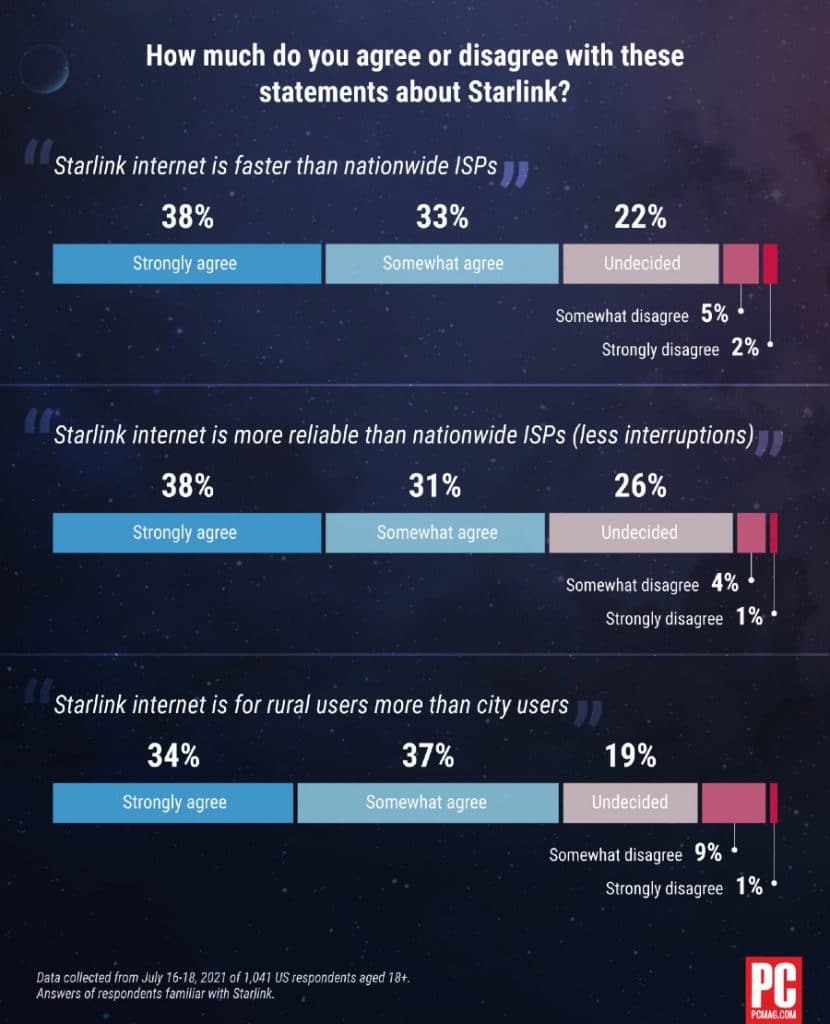A new study from PCMag found strong intent to purchase Starlink low-earth satellite broadband from SpaceX. But what people think they would be buying differs significantly from what they actually would be buying, researchers found.
PCMag surveyed 1,041 people over 17 years of age about Starlink in mid-July. More than 55% didn’t know what Starlink is. But among the 45% of those familiar with the nascent service, 76% said they would be very likely (40%) or somewhat likely (36%) to switch to it from their current provider if it was available in their area.
The survey found that 19% are undecided about whether to purchase Starlink service and only 5% are unlikely to do so (3% somewhat unlikely and 2% very unlikely).
That finding may say more about respondents’ opinions of incumbents than it does about Starlink, wrote PCMag features editor Eric Griffith in an article about the study about intent to purchase Starlink. Indeed, a misunderstanding appears at least somewhat responsible for Starlink’s popularity.
“Our follow-up questions showed that the majority of people agree with statements that Starlink is faster and more reliable (meaning fewer interruptions) than nationwide ISPs such as Comcast Xfinity, Verizon Fios, and Charter’s Spectrum,” Griffith wrote. “Sure, Starlink is faster than any satellite competitor, but it’s nowhere near faster than a cable or fiber connection today.”
The survey also found that 69% of respondents think Starlink is “cooler” than nationwide ISPs.
These misunderstandings about Starlink likely contributed to the strong intent to purchase Starlink service.
The poor understanding of the service is ironic, in that 17% of respondents said they were somewhat familiar with the service and 15% said they were very familiar.
In May, Starlink launched 60 more satellites (bringing its total at that point to about 1,500 in orbit) and said that it had 500,000 preorders for the service. Each preorder requires a refundable $99 fee and a $499 equipment fee commitment.
In March, PCMag identified the 253 counties in the United States that are most likely to benefit from Starlink. Adams County, ID topped the list.
Joan Engebretson contributed to this report.




